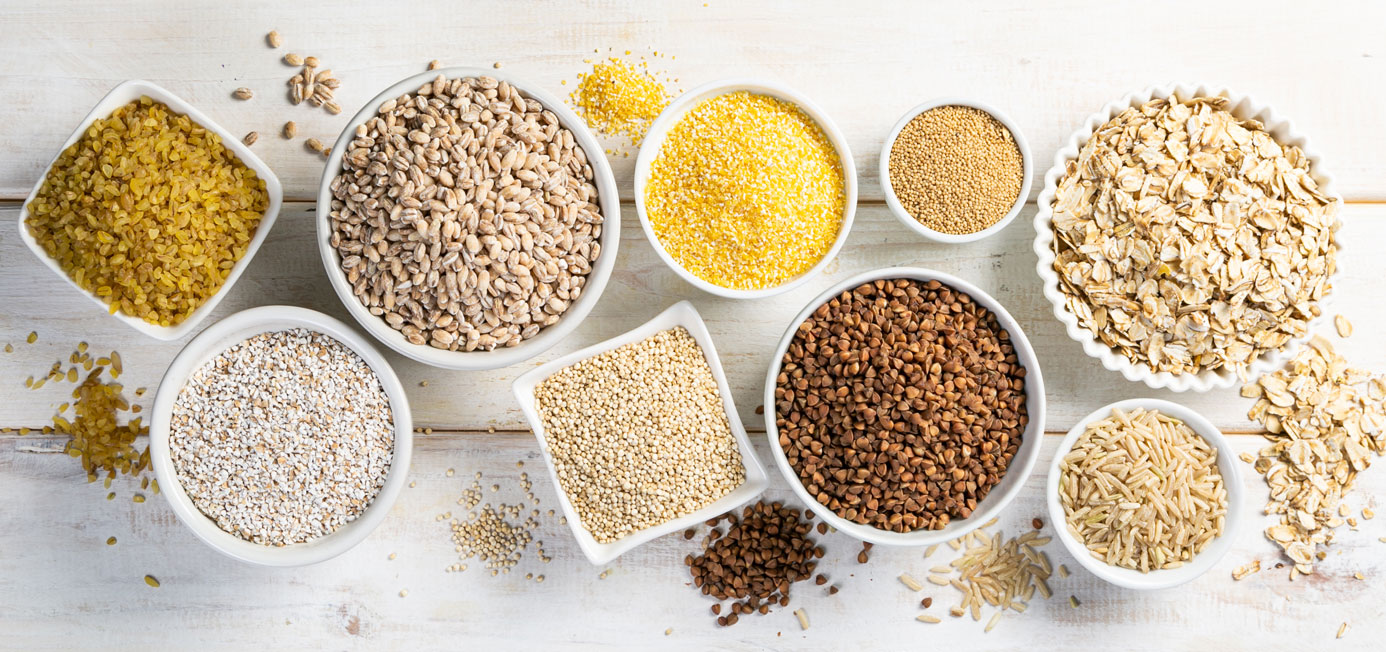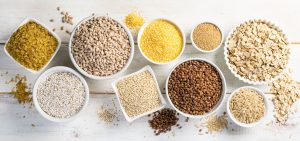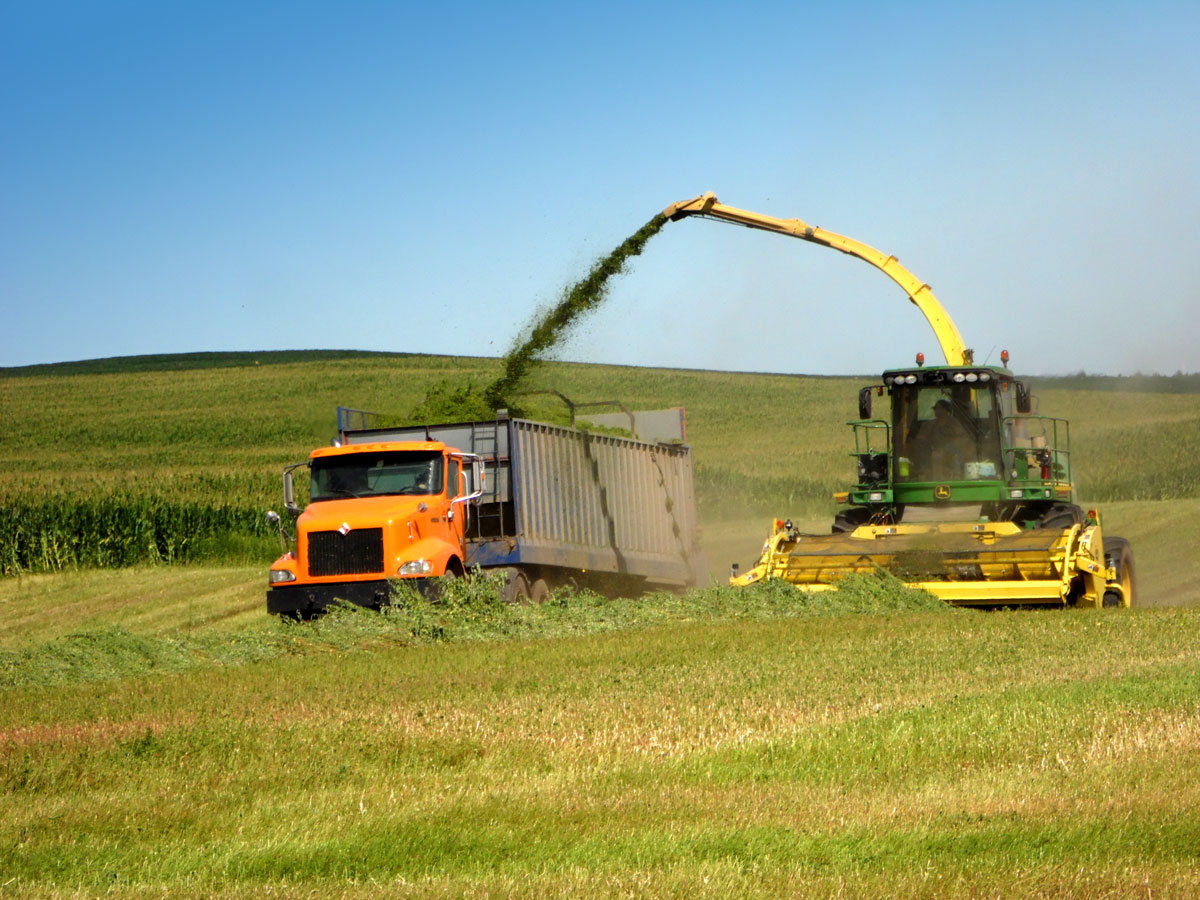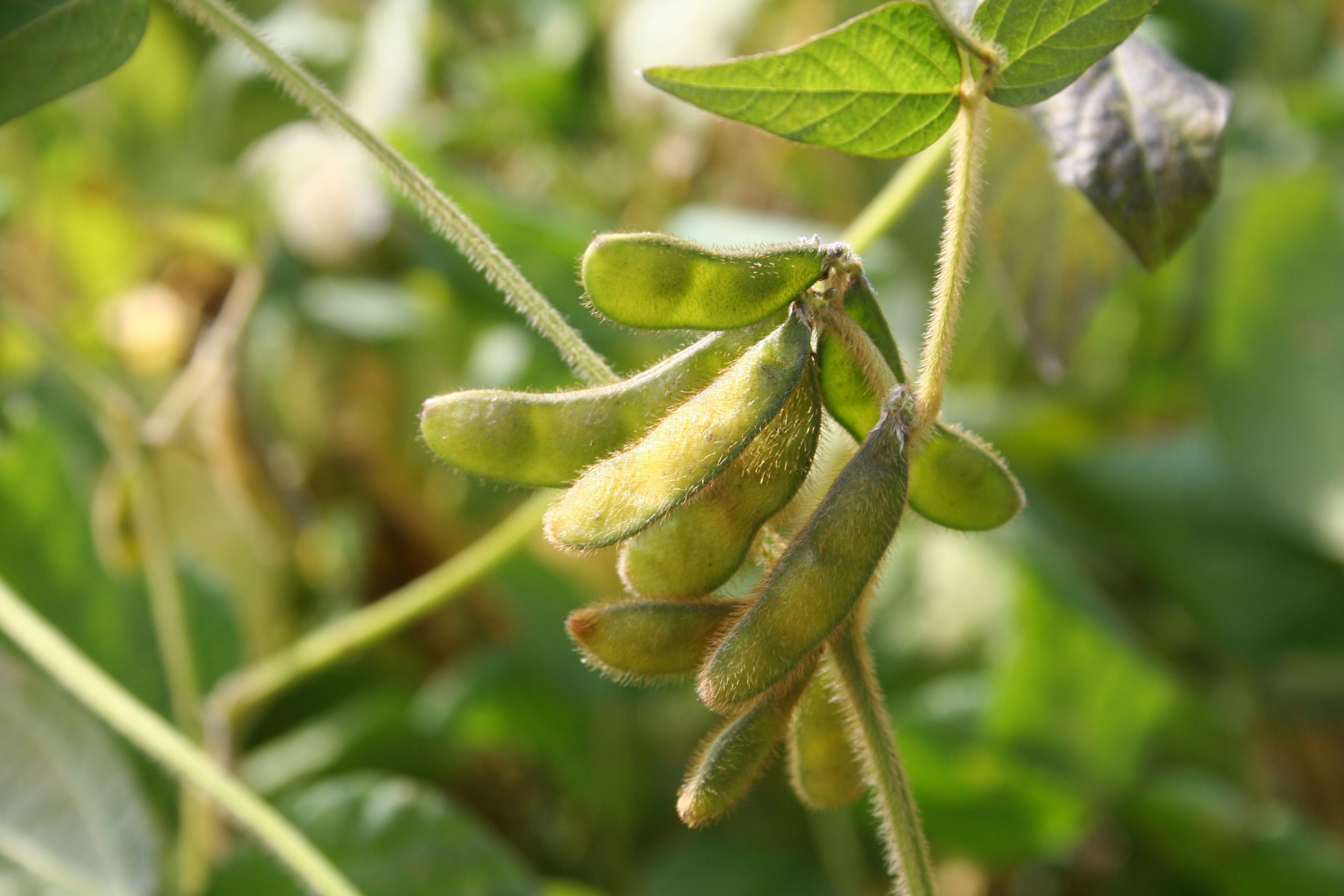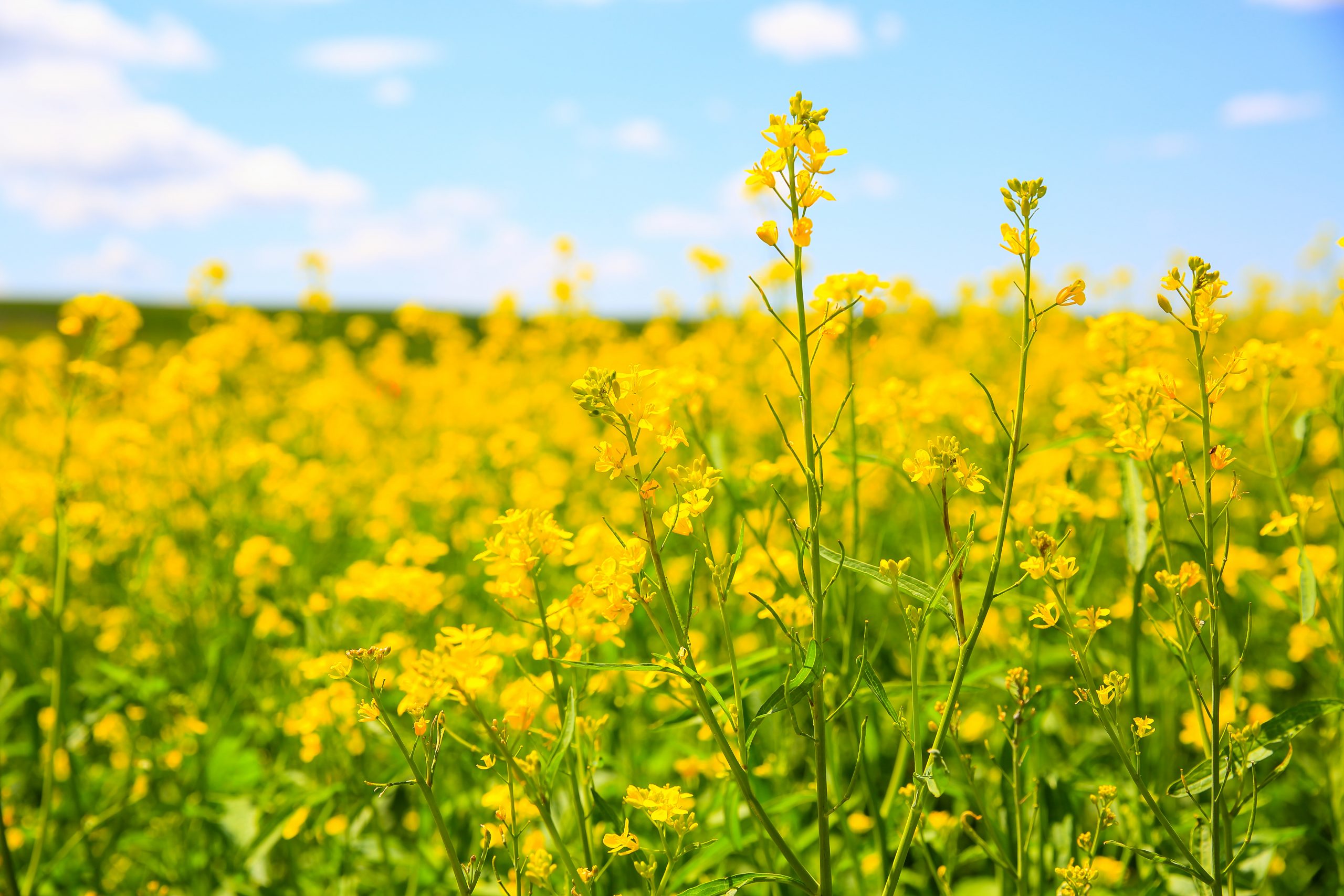- Published On: June 27, 2019
- Author: Steve Sinkula
When Steve Merfeld heard Farmers Business Network (FBN) was investing in AgriSecure, he started to think about whether his 2,200-acre farm in Nashua, Iowa, should get into organic production.
He presented the idea to two farmers he works with and they agreed to investigate further. After meeting with AgriSecure and reflecting on their experiences with practices that are part of organic production, they decided to move forward and are in the process of transitioning some of their acres. They plan to continue transitioning additional fields into organic over time.
While there were many factors that sold Steve and his partners on getting into organics, the key was recognizing the long-term consumer demand they could leverage to build security and sustainability on their operations.
Recognizing the high demand for organics
The demand for organic foods first caught Steve’s attention when his wife talked about the messages she was seeing around food on Facebook. He says it was clear that young Americans wanted food that was less processed, contained fewer ingredients, and was produced sustainably.
He began to realize this was a long-term change in preference and not just a trend when some relatives, who are young professionals now living in urban areas, would visit the farm.
“It was very clear the foods they’re eating were completely different from what they grew up on,” he says.
Steve also realized that the demand was logical. If a person doesn’t understand how food is produced, their perception is they can avoid safety concerns by choosing organic.
In addition, he learned that consumers want their organic foods produced domestically, and the demand for that is growing faster than the number of organic farmers.
“I’ve watched traditional organizations go down the path of ‘We just need to teach the consumer what we’re doing.’ And I’ve seen that not get very far,” Steve says. “The other option is to actually try to figure out what the consumer is changing towards and try to be a leader at providing exactly what they want.”
Based on this information, Steve opted for the latter with organic production and anticipates many benefits for doing so.
Organics lead to a secure, sustainable future
The first and immediate benefit is to the consumer by providing exactly what they want. But Steve believes it will also bring long-term benefits to his farm.
The first is it helps create a safe and sustainable operation. Steve plans on using plants in his crop rotation to provide nitrogen instead of relying only on commercial nitrogen. Doing so will not only benefit his organic crops but also the soil, as it will receive carbon and other beneficial biology and increased organic matter that plants, such as cover crops, support.
“The goal is to have healthy soil in the cycle of organic production. That’s something you can hand off to the next generation — a nice, rich, healthy soil and a safe one,” Steve says, adding that organic will also eliminate exposure to pesticides for both him, his family and his soils.
And thanks to premium pricing — organic grain prices are about 2-3 times higher than conventional — it will also financially help his and his family’s future.
“Farming doesn’t have a 401k,” Steve says. “Our retirement is based on very strong management skills and being able to set aside some of our earnings. From that standpoint, if there are some extra dollars we can leverage that security for our farms and families.”
Finally, by meeting consumer demand here in the states, it will also benefit the U.S. economy.
Fulfilling consumer demand and expectations
Reaping the benefits of organic production requires a high level of management and key decision making, one of those being which crops to grow. While Steve’s farm is still in transition to organic, he already has a plan for making these decisions.
The first is to consider what crops grow well in his region, as well as those that could grow well. For example, canola is more common in the Dakotas and Nebraska than in northern Iowa where he’s located, but that doesn’t mean it couldn’t do well there.
The only way to learn what crops Steve might be missing out on is through organizations and networks like AgriSecure and the Practical Farmers of Iowa, which are able to recommend new crops that will grow well in his agronomic situation.
After determining what can or may grow well, his next step is to look at the markets and make a decision based on what will meet consumer demand while providing a nice premium.
Tips for the transition
While Steve is still in the transition process himself, he has some advice for farmers on getting comfortable with the change.
1. Have a high level of confidence for the challenges you envision ahead.
One of the reasons Steve and his partners felt confident getting into organics is that they had some experience with several practices that are part of organic production. Steve had used cover crops, which are a component of weed control in organics, as well as chicken litter, while one of the other farmers had worked on a nursery and was familiar with mechanical weed control and other tools similar to organic production.
“The three of us together could all visualize with a higher degree of confidence that we could do this based on our experiences,” Steve says. He advises others to feel just as confident getting into this system.
2. Get crop insurance and understand the business.
When transitioning to organics, crop insurance is no different, so Steve recommends investing in it.
“Utilizing that tool of protection can minimize your losses if you have them in the transition period,” he says, noting that he worked with AgriSecure and his crop insurance agent to get the right insurance plan in place. He adds that farmers should also have a broad understanding of the business, which AgriSecure has also been instrumental in helping establish.
3. Have a reliable network
Steve’s last piece of advice is not to get into organics alone.
“You have to have an open mind and you’ve got to be talking to people all the time,” he says. “Lean on a network to get over the hump, because they can share ideas that you might not be thinking about it.
“The transition is a big deal. It’s scary. And that’s where you can rely on that network to keep pushing you through the plans you have laid out to get the job done.”
Related Articles
-
Organic Integrity: New Rules to Strengthen Organic Enforcement
Strengthening Organic Enforcement. Or SOE, for short. If you’re an organic farmer or in transition, chances are you’ve heard of it. But what does it all mean? In a lot of ways, it’s just like it sounds. SOE is a rule that gives regulators more oversight of organic production practices. As a result, it provides […]
-
Organic Certification. Done by Sep 2020. Check!
The pandemic turned “normal” upside down in 2020, but it didn’t stop AgriSecure. Our members got their organic certification completed. On time. COVID-19 caused communication delays. It created confusion across the nation. Still, all our members had their organic certification paperwork done by September. Why? For one, row crop farmers gained from our expertise in […]
-
Organic Transition Provides “Peace of Mind” and an Edge
Not so long ago, Todd Grohs realized he had a problem. He was doing the budget for his 5,000-acre farm in Wessington Spring, S.D., and the numbers didn’t look good. “I said, ‘I’ve got an option here. If I stay doing what I’m doing, in three to four years I’ll have all of my equity […]
-
Farm & Livestock Directory Looks to AgriSecure for Answers
Farmers have a lot of questions when considering the transition to organic crops. To help their readers, Farm & Livestock Directory looked to AgriSecure and Farmers’ Business Network to get started on seven common questions. Check out Thinking About Transitioning to Organic? Seven common questions answered to read AgriSecure Founder J.P. Rhea’s thoughts and insights. AgriSecure frequently answers […]
-
AgriSecure Answers Your Questions About Organic Transition
As the demand for organic products continues to rise, more farmers have become increasingly interested in exploring this growing market. However, the unknown can make farmers hesitant to begin transitioning conventional acres to organic. While organic farming comes with its own set of challenges, AgriSecure aims to arm farmers with the right resources to succeed. […]
Get in the know
Our newsletter, it’s a quick read. You’ll get industry news plus all the latest organic insights. Who doesn’t want that?
